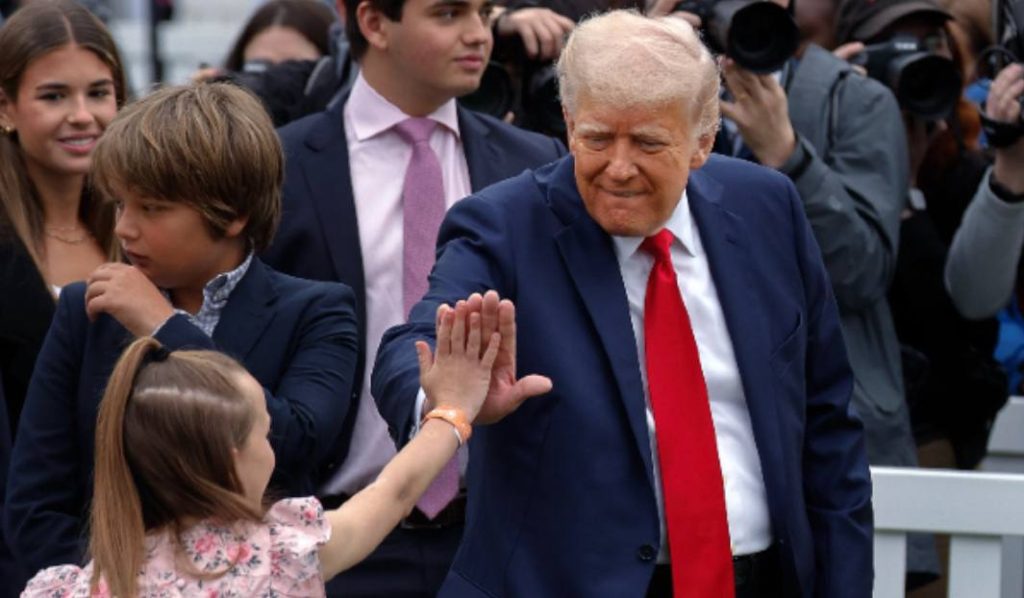WASHINGTON — The Trump administration is weighing proposals aimed at encouraging Americans to marry and have children, including a potential $5,000 “baby bonus” for new mothers. The initiative reflects growing concerns over the nation’s declining birth rate and is being promoted by pro-natalist advocacy groups pushing for broader family-focused policies.

One such proposal presented to White House officials calls for a one-time $5,000 payment to American mothers following childbirth. Asked about the idea on Tuesday, former President Donald Trump responded, “Sounds like a good idea to me.”
White House press secretary Karoline Leavitt confirmed the administration has been reviewing various proposals that support families, though no final decision has been made. “The president is proudly implementing policies to uplift American families,” Leavitt said. “As a mother myself, I am proud to work for a president who is taking significant action to leave a better country for the next generation.”
Officials emphasized that while these proposals are under consideration, they may not represent official administration policy. Still, proponents point to Trump’s previous executive actions, such as expanding access to in vitro fertilization (IVF), as examples of his commitment to supporting family growth.
On the campaign trail, Trump has repeatedly positioned himself as an advocate for fertility initiatives, referring to himself as the “King of IVF” and, jokingly, the “fertilization president.”
Vice President J.D. Vance has also voiced strong support for increasing the birth rate, advocating for a significant expansion of the child tax credit. “I want more happy children in our country,” Vance said during the March for Life rally in January. “It is the task of our government to make it easier for young moms and dads to afford to have kids… and to welcome them as the blessings that we know they are.”
He added that national success should be measured by families’ ability to thrive, not just economic metrics like GDP.
Among the outside advocates pushing for bold policy changes are Simone and Malcolm Collins, prominent pro-natalist thinkers. They have submitted a series of draft executive orders to the White House, including one that would create a “National Medal of Motherhood” for women who raise six or more children and another proposing to eliminate the so-called “marriage penalty” in the tax code. According to Simone Collins, the administration has been receptive and is reviewing the proposals.
However, the initiative has drawn strong criticism from family policy advocacy groups. Kristin Rowe-Finkbeiner, CEO of MomsRising, dismissed the proposals as “sheer lunacy,” arguing they fail to address the deeper systemic needs of American families.
“Families need policies that make it possible for moms and parents to care for their kids, go to work, and contribute to their communities,” Rowe-Finkbeiner said. “Affordable child and elder care, access to maternal health services, and paid family leave would do far more to support parents than one-time bonuses or symbolic awards.”
She concluded that any serious attempt to reverse the declining birth rate must include comprehensive support systems for families—not just financial incentives.